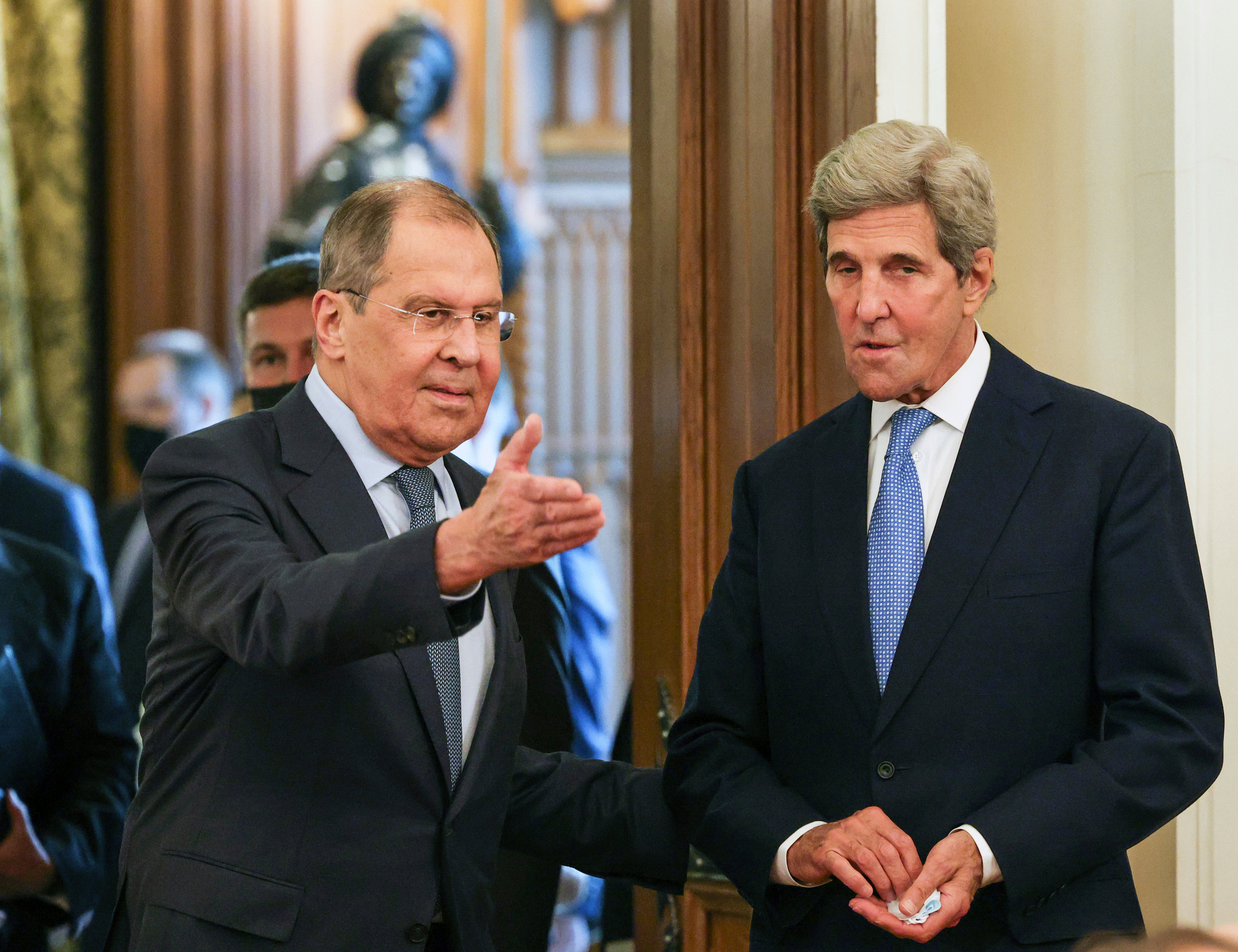US-Russia say climate talks a springboard to ease tensions
U.S. climate envoy John Kerry and Russian Foreign Minister Sergey Lavrov have expressed hope that climate change talks could act as a springboard to help reduce escalating tensions between the two rival nations

Your support helps us to tell the story
From reproductive rights to climate change to Big Tech, The Independent is on the ground when the story is developing. Whether it's investigating the financials of Elon Musk's pro-Trump PAC or producing our latest documentary, 'The A Word', which shines a light on the American women fighting for reproductive rights, we know how important it is to parse out the facts from the messaging.
At such a critical moment in US history, we need reporters on the ground. Your donation allows us to keep sending journalists to speak to both sides of the story.
The Independent is trusted by Americans across the entire political spectrum. And unlike many other quality news outlets, we choose not to lock Americans out of our reporting and analysis with paywalls. We believe quality journalism should be available to everyone, paid for by those who can afford it.
Your support makes all the difference.U.S. climate envoy John Kerry and Russian Foreign Minister Sergey Lavrov expressed hope on Monday that climate change talks could act as a springboard to help reduce escalating tensions between the two rivals nations.
Kerry met Lavrov as part of his four-day visit to Moscow as tensions continue to complicate the two countries' bilateral relations. Kerry is the highest-ranking official from President Joe Biden s administration to visit Russia so far.
Lavrov said that Russia “attaches great importance" to the issues of climate change and will continue to cooperate with other nations on these issues.
Russia's top diplomat said Kerry's Moscow visit sends “an important and a positive signal for development of our bilateral relations, for alleviating the tension, and establishing substantive and professional work in the areas where we can find a common denominator.”
Kerry said he believed there was “space” for Russia and the U.S. “to collaborate on this (climate change issues) and perhaps to be able to open up some better opportunities on other issues, as we do cooperate on this.”
The U.S. official said climate change is as important a challenge as any the two men had negotiated in the past such as nuclear weapons.
“We spent years, you and I, negotiating on worse. We negotiated on chemical weapons, we negotiated on nuclear weapons. I would say to you without any reservation, this is absolutely as critical, as compelling, as urgent an issue, as any of those others,” Kerry said.
The U.S. follows China as global leaders in climate-damaging emissions of coal and petroleum fumes. But Russia, the world's No. 4 because of its dependence on coal for power generation, is an outsize contributor to climate change relative to the size of its economy and population.
Kerry, former Secretary of State in the Obama administration, is encouraging other governments to commit to tough targets to cut emissions ahead of a U.N. global climate summit later this year.
Russian President Vladimir Putin took part by video in Biden’s April climate summit. But the Russian leader's government has set only unambitious goals for cutting emissions as the waste from burning fossil fuels heats up the planet.
Kerry's trip comes as the two nations spar over ransomware attacks blamed on gangs linked to Russia, putting Biden under domestic pressure to punish Russia over the hacking.
Biden’s administration has sought cooperation with U.S. opponents and competitors on climate despite sometimes hostile relations on other matters.